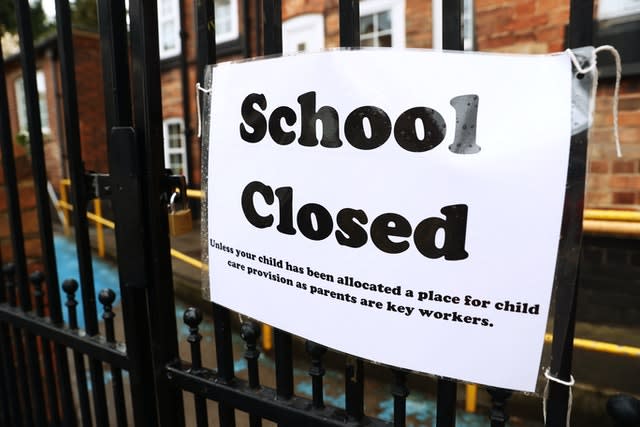Teenagers’ anxiety levels improve during lockdown, study suggests
Questions have been raised about the impact of the school environment on teenagers’ mental health after a study suggested their anxiety levels had improved during the coronavirus lockdown.
Academics said young people would need more support and help when they return to the classroom in September after nearly six months of interrupted studies.
The pandemic saw schools closed and unprecedented restrictions placed on people’s lives – with people told to stay at home.
Many young people lost contact with friends and support networks when the restrictions were imposed but instead of their anxiety levels worsening, they improved, according to the study.
Researchers at the University of Bristol suggested that this was because there was no longer the day-to-day pressures of school life and difficult peer relationships.
In October last year they surveyed more than 1,000 year nine students from 17 secondary schools across the South West of England.
They found that 54% of 13 and 14-year-old girls showed they were at risk of anxiety – compared to 26% of boys of the same age.
When surveyed again in May, the figures dropped by nearly 10% among girls to 45% and to just 18% of boys.
“With the whole world in the grip of a devastating pandemic, which has thrown everyone’s lives into turmoil, the natural expectation would be to see an increase in anxiety,” said lead author Emily Widnall.
“While we saw anxiety levels rise for a few of our participants, it was a big surprise to discover quite the opposite was the case for many of them.
“Of particular interest, those students who felt least connected to school before the lockdown saw a larger decrease in anxiety which raises questions about how the school environment affects some younger teenagers’ mental wellbeing.”
Depression levels remained fairly consistent over time, with a 2% decrease in boys at risk of depression and a 3% increase in girls at risk of depression.

“This was again unexpected and arguably shows the resilience of young people and their ability to adapt to challenging situations,” Miss Widnall said.
“Amidst other headlines highlighting concerns about young people’s mental health being negatively affected, this is in one sense very welcome news, but at the same time it raises interesting questions about what the key drivers and triggers of anxiety or depression are for this particular age group.”
Many students’ sense of wellbeing also improved during lockdown, with boys showing a bigger improvement than girls.
“Despite not attending, boys and girls both reported stronger connectedness to school during lockdown, with marked increases in the number of students who said they get the opportunity to talk with their teachers,” Miss Widnall said.
The survey results showed reduced anxiety and improved wellbeing coincided with significantly greater use of social media among girls – challenging a common perception that social media detrimentally affects mental health.
The biggest increase was seen during the week, when 55% reported spending in excess of three hours daily on social media during lockdown.
The findings are published in a report for the National Institute for Health Research School for Public Health Research.
Dr Judi Kidger, from the University of Bristol, said: “Our findings raise questions about the role of the school environment in explaining rises in mental health difficulties among teenagers in recent years.
“As schools reopen, we need to consider ways in which schools can be more supportive of mental health for all students.”
– The report, Young People’s Mental Health during the Covid-19 Pandemic: Initial findings from a secondary school survey study in South West England, is published by National Institute for Health Research School for Public Health Research.

 Yahoo News
Yahoo News 


